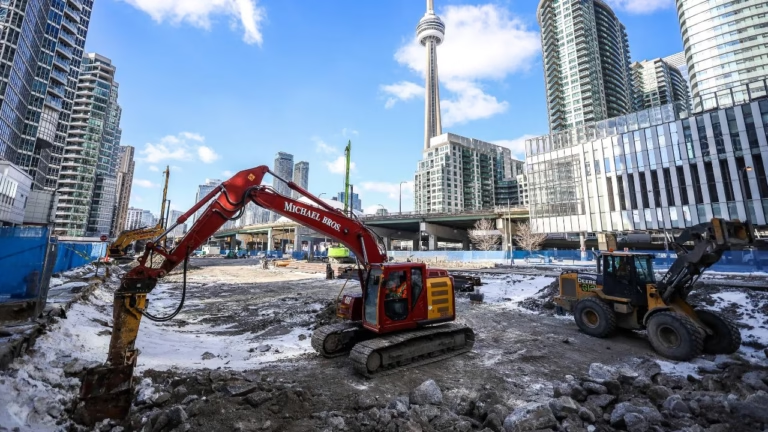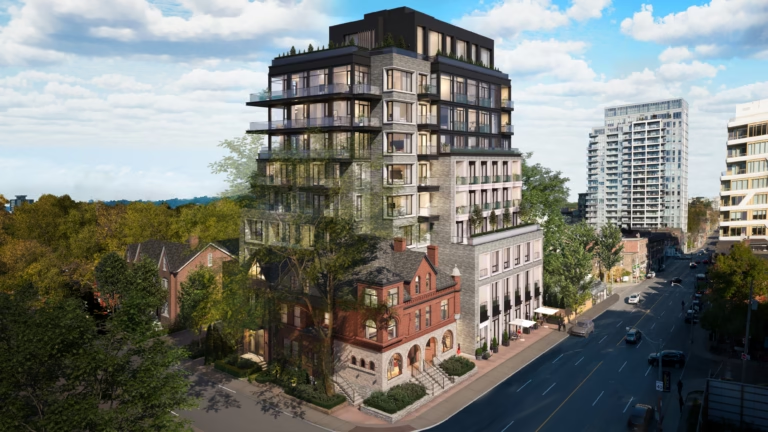Canada’s condo market, particularly in major cities like Toronto, has taken a hit over the last 18 months, but it doesn’t mean there aren’t opportunities to consider. Prices have come down significantly from peak levels, pre-construction activity has stalled, and investor sentiment has cooled. While this may sound like a red flag, it could actually signal a rare window of opportunity for buyers who are not quite ready to move in but are considering investing for the long term, let’s think 2-5 years.
Prices for condos in the GTA have fallen roughly 13% from their 2022 highs, and TD Economics is projecting resale prices will decline another 15 – 20% from their Q3 2023 levels by the end of 2025. However, those same forecasts suggest that prices may begin to stabilize in 2026, and by that time, they could settle roughly 5 – 10% above pre-pandemic values. This kind of pricing reset creates entry points for investors who are looking to buy low and potentially build equity over time.
At the same time, the new construction market has slowed dramatically. New condo starts in the GTA dropped year-over-year in both Q1 & Q2, 2025, hitting the lowest levels seen since the 1990s. With fewer projects launching and many being cancelled or postponed, the development pipeline is thinning out. In fact, completions are expected to fall significantly in 2026 and 2027, down to about 17,500 units from over 31,000 in 2025.
Does anyone remember the real estate market of the late 80s, early 90s? There are similarities to what we are experiencing today.
This dramatic drop-off in new supply suggests that in the next 2 – 5 years, there may be very few new units hitting the market. The lack of new inventory, combined with the natural absorption of current listings, could tighten the resale market again and help support price appreciation. For buyers entering the market now, that could translate to solid equity gains, especially if interest rates ease and demand picks up.
Another important factor is the current investor retreat. Many small-scale investors who bought pre-construction units in previous years are now selling at a loss or walking away from deals, particularly in cases where carrying costs exceed potential rental income. Banks are also appraising properties much lower than original purchase price. Some developers are even cancelling projects mid-way through due to high construction costs and lower buyer demand. While this has added short-term volatility, it’s also clearing the way for new, better-capitalized buyers to enter the market with more favourable terms.
It’s worth noting that we are potentially heading toward a supply crunch. Because pre-construction starts have come to a near halt, many of the units that would have been closing in 2026 or 2027 simply won’t exist. This supply shortage could lead to a shift in the balance of power back toward sellers in the resale market, especially for quality, well-located units near transit, schools, or downtown cores. This could make today’s discounted prices look like a bargain in just a few years.
Of course, there are risks. Prices may fall further, especially in investor-heavy buildings or less desirable areas. Mortgage rates remain high, which means higher monthly carrying costs. Investors need to be prepared to hold through volatility and avoid overleveraging. But for those who can afford to carry a property for 2 – 5 years, and who are strategic about what and where they buy, there’s a compelling case to be made for entering the market now.
Resale is where it’s at. In terms of strategy, buyers should focus on resale units where the price is negotiable and the property is already built. There are deals to be had, especially with motivated sellers looking to offload inventory. Pre-construction can still be worthwhile, but it’s more important than ever to vet the developer’s track record, financing, and the likelihood of the project being completed as promised. Prioritize livability, connectivity, and long-term demand over speculative gains.
Bank of Canada interest rate policy will also play a key role. Many economists expect rates to begin dropping gradually in late 2025 to Spring 2026. That could reignite both investor and end-user demand, putting upward pressure on prices once again. If the market turns while supply remains tight, the rebound could be swift.
Summary
While the Canadian condo market, especially in Toronto, is currently soft, this period of weakness may offer a valuable opportunity for investors or first time home buyers, who are thinking long-term. With prices down, pre-construction at a standstill, and a future supply gap looming, today’s buyers could find themselves well-positioned for equity growth over the next few years. The key will be patience, strategic buying, and a strong financial plan to hold through the next phase of the cycle.
If you are considering getting back into the market, speak with a qualified Mortgage Agent or Broker and an experienced REALTOR® who has navigated this type of market before for proper guidance in your home buying journey.
Read more here:











